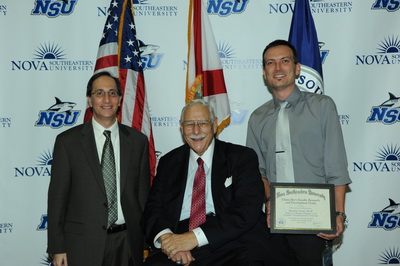Detection of Mosquito Pathogens in the Everglades Using Metagenomic Technologies
Grant Winner
- Aurelien Tartar, PhD – Farquhar College of Arts and Sciences
Dean
- Don Rosenblum Ph.D. – Farquhar College of Arts and Sciences
Abstract

Located a few miles away from Nova Southeastern University, the Everglades National Park is notorious for its abundant mosquito populations. Potentially, these mosquito populations are impacted by pathogenic microbes that may be used as mosquito-control tools in the concerted effort to eradicate mosquito-borne diseases worldwide. The objective of this proposal is to accelerate the detection and identification of mosquito pathogens in the Everglades. Research methodologies are based on modern, culture-independent protocols that combine metagenomic DNA extraction and specific amplification of genes associated with mosquito pathogens. This metagenomic approach has been developed at NSU since Fall 2008, and preliminary data has indicated that selected mosquito pathogens such as the green algae Helicosporidium can successfully be detected in environmental fresh water sources (mosquito breeding grounds). Building on this unique and novel protocol, our specific objectives are two-fold. First, our current detection assay will be refined and streamlined in order to process a larger quantity of environmental water samples from the Everglades National Park. Our aim is to generate a wealth of novel biogeographical/ecological data that is quantitatively and qualitatively compatible with scientific publications, and that will shed light on the little-known native microbial populations in the Everglades (with an emphasis on mosquito pathogens). In addition, the research project will be used as an educational tool to provide NSU undergraduate students with hands-on opportunities and training associated with modern biological technologies such as metagenomics, bioinformatics and pathogen bioassays. The vast majority of student-led research activities will occur at NSU throughout the 2010-2011 academic year. However, our collaborative effort with the University of Florida also offers the opportunity for a selected number of students to experience a three-week summer research internship at UF (2011), under the supervision of elite scientists, to perform the critical mosquito/pathogen bioassays that will validate the entire project.